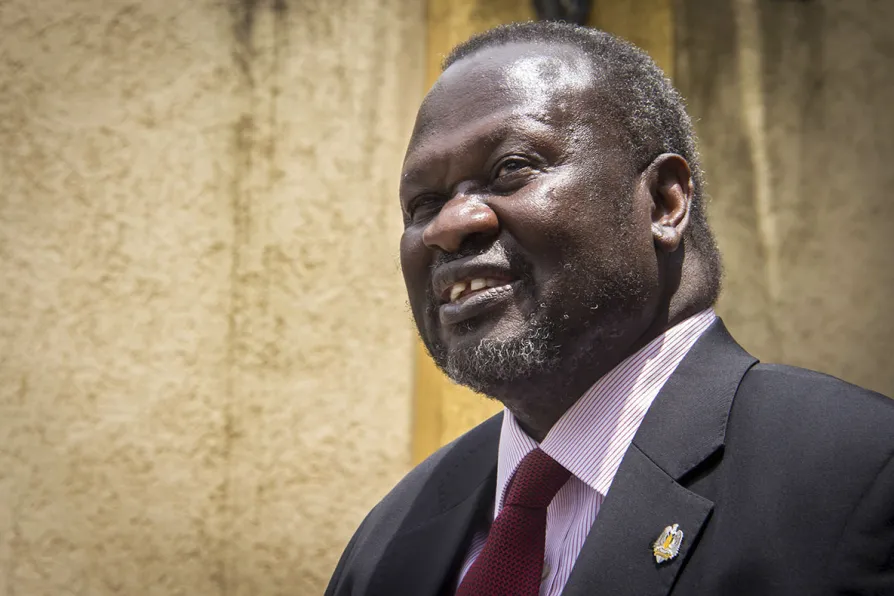
 South Sudan's rebel leader Riek Machar speaks to the media about the situation in South Sudan following a peace agreement the week before with the government, in Addis Ababa, Ethiopia, August 31, 2015
South Sudan's rebel leader Riek Machar speaks to the media about the situation in South Sudan following a peace agreement the week before with the government, in Addis Ababa, Ethiopia, August 31, 2015
THE CRIMINAL trial of South Sudan’s suspended vice-president began in the capital Juba today, with Riek Machar appearing in a cage alongside his co-defendants.
It was the first time that Mr Machar had been seen in public since he was placed under house arrest in March.
President Salva Kiir suspended his deputy earlier this month after justice authorities filed criminal charges over the latter’s alleged role in an attack on a government military garrison earlier this year.
In addition to treason, Mr Machar and seven others face charges of crimes against humanity, murder, conspiracy, terrorism, destruction of public property and military assets.
The opening of the trial by a special court was broadcast on national television.
In opening remarks, a lawyer for Mr Machar opposed the proceedings by what he described as “an incompetent court” that lacks jurisdiction.
The defence argued Mr Machar cannot be criminally charged without violating the spirit of a 2018 peace deal between him and Mr Kiir to end a deadly civil war that caused the death of an estimated 400,000 people.
That agreement is the basis for the transitional government, in which Mr Machar was serving as first vice-president.
Defence lawyers said the agreement effectively governs South Sudan, which has been on the brink of a return to full-blown war as government forces battle armed groups believed to be loyal to Mr Machar.
The proceedings were then adjourned until tomorrow.
Mr Kiir and Mr Machar were leaders of the rebel movement that secured South Sudan’s independence from Sudan in 2011. They belong to rival ethnic groups: Mr Kiir is from the Dinka, the largest, and Mr Machar is from the Nuer, the second-largest.
Their military rivalry began in the 1990s, when Machar led a breakaway unit that drew accusations he had betrayed the rebel movement.
During the split, forces loyal to him carried out a massacre in the town of Bor that targeted the Dinka, angering rebel commander Mr Kiir and John Garang, the movement’s now-deceased political figurehead.
Fighting among southerners briefly undermined their struggle for independence and also sowed lifelong distrust between Mr Kiir and Mr Machar.










